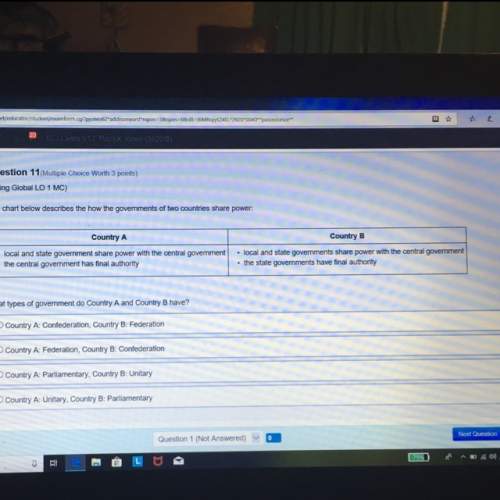
History, 14.12.2020 23:40 barisege6030
In the case of Schenck v. United States the Supreme Court ruled that the Espionage Act was unconstitutional. Charles Schenck had been falsely accused. speech aimed to potentially create danger could be banned. the First Amendment had no limits.

Answers: 2


Another question on History

History, 21.06.2019 14:20
Earthquakes are especially common in which of the following regions?
Answers: 2

History, 21.06.2019 18:30
The sixth amendment of the u.s. constitution guarantees the right to which of the following?
Answers: 1

History, 22.06.2019 02:00
Since so many american men during world war ii were fighting overseas, the factorices lay empty. this presented a problem the u.s. military was in such dire need of manufactured goods bullera, tanks, airplanes , ships, and many other things. whose point of view si best reflected in these lunes?
Answers: 1

History, 22.06.2019 03:30
Con pering.com = apex learning united states history and geography sem 1 1.5.2 test (cst): becoming american question 12 of 20 2 points list the following events in the correct chronological order. * the boston tea party occurred. britain repealed all of the townshend acts except the tea tax + the committees of correspondence and safety were established submit
Answers: 2
You know the right answer?
In the case of Schenck v. United States the Supreme Court ruled that the Espionage Act was unconstit...
Questions








Mathematics, 04.01.2021 02:50


Mathematics, 04.01.2021 02:50


Mathematics, 04.01.2021 02:50

English, 04.01.2021 02:50

Biology, 04.01.2021 02:50



Computers and Technology, 04.01.2021 02:50

History, 04.01.2021 02:50

English, 04.01.2021 02:50

History, 04.01.2021 03:00




